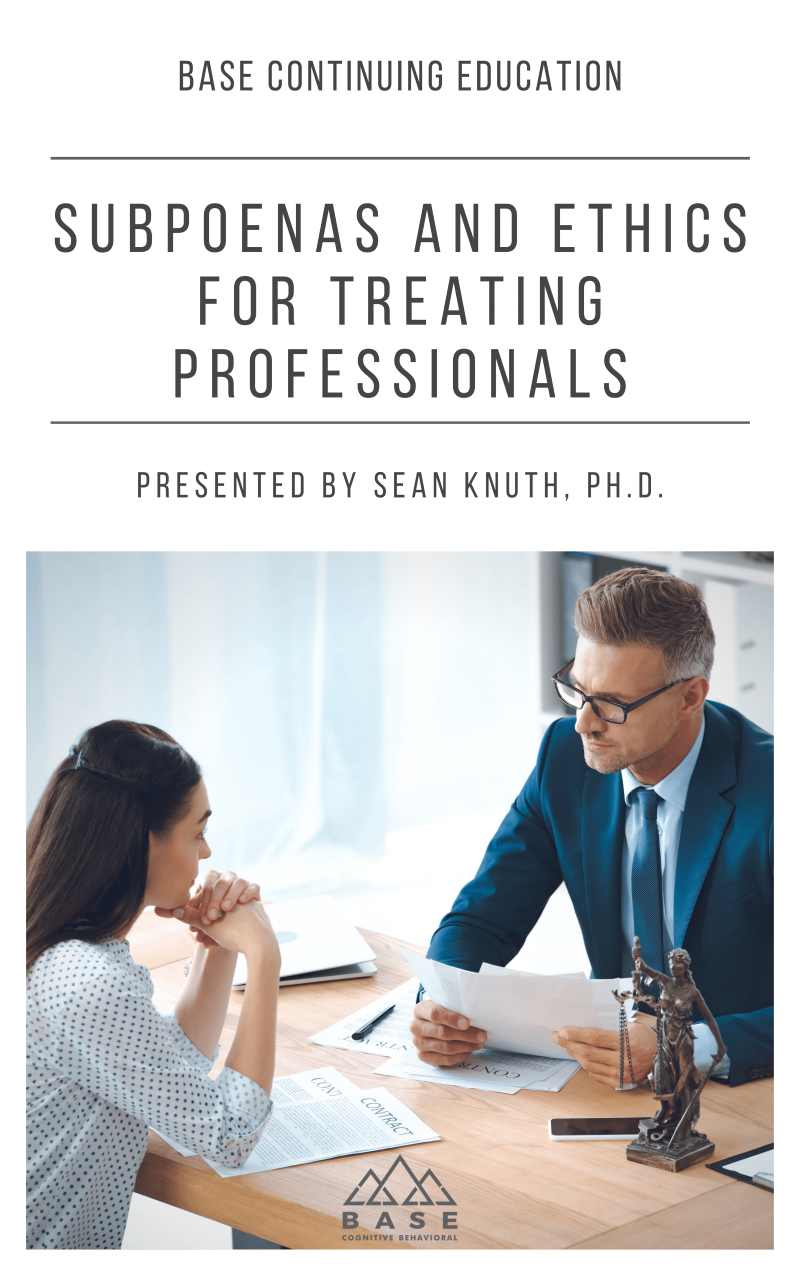Independent Study for CE Credit
In addition to our live continuing education events, we are pleased to offer recorded webinars as well.
To start, purchase the video and exam on the BASE website. Study the video material.
Complete the exam. Note the exam needs to be completed in full as answers cannot be saved for a later time. A passing score is 75% or higher. You may retake the exam as many times as you need in order to have a good grasp of the material.
Complete the evaluation.
Your CE certificate will be emailed to you. Documentation of CE credit is based on the date the exam is completed in the Eastern time zone. The completion date cannot be changed.
Refund Policy: Online CE exams are non-refundable.
Please contact info@findyourbase.com if you have any questions or concerns.
Supporting Co-Parents as They Navigate Separation and/or Divorce
By Tara Egan
This course is designed to provide practitioners with a deeper understanding of the common issues experienced by coparents and their children who experiencing separation and/or divorce. We will explore best practices in supporting coparenting, discuss techniques that are counterproductive to the coparenting relationship, and examine ways in which parents can facilitate resilience within their children as the family adjusts to the changes in circumstances. Through participation in this training, attendees should be able to effectively apply concepts and strategies to their own clinical work with clients experiencing separation and/or divorce.
Webinar Exam
2 CE Credits
Subpoenas and Ethics for Treating Professionals
By Sean Knuth
This course is intended to provide practicing mental health clinicians with a more robust understanding of how mental health practitioners can assist in the administration of justice in a manner that is ethically defensible while minimizing any concerns about their ability to provide high quality care to current and future clients/patients, particularly as it relates to civil court proceedings.
Webinar Exam
2 CE Credits
Applying Emotionally Focused Therapy to Individuals and Family Work: An Introduction
By Maria Brady
This presentation will provide a review of Emotionally Focused Couple Therapy (EFT) as a framework for applying this modality to working with individuals (Emotionally Focused Individual Therapy – EFIT) and families (Emotionally Focused Family Therapy – EFFT). As a modality based in attachment theory, EFIT and EFFT seek to make systemic change on a deep attachment level rather than behavioral change for the individual or family. Through participation in this training, attendees should be able to effectively describe EFFT and EFIT and apply it to their own clinical work.
Webinar Exam
2 CE Credits
Couples Counseling Through the Parenting Years: An Attachment Perspective
By Lori Epting
Research shows that an escalation in marital conflict and decline in marital satisfaction after couples become parents can make the parenting years a vulnerable time for couples. This course is designed to increase mental health practitioner’s understanding of the common issues couples face in the parenting years and relational dynamics that can arise or exacerbate with the added stressors of parenting. The course will also provide an overview of empirically-based couples interventions that help couples experience the relationship as a safe haven for parenting stressors.
Webinar Exam
2 CE Credits
Suicide Loss: What Therapists Need to Know for Their Clients and Themselves
By Amanda McGough
Given the rising suicide rates in our country over the past 15 years in nearly all demographic categories, being able to provide effective support to individuals who have lost a loved one to suicide is an important clinical skill for clinicians. This training will cover the latest information in the field of suicidology and suicide bereavement to equip clinicians. This training will also cover best practices in responding to the suicide of a client and how to best care for ourselves if we lose a client.
Webinar Exam
2 CE Credits
DBT In-Depth: Distress Tolerance
By Kristin Daley
Distress Tolerance (DT) is one of the four key modules in DBT, emphasizing the importance of an individual's ability to manage conflicts and problems that may arise. In this continuing education program, we will look at the factors that constitute distress tolerance, how it can be assessed, and specific DT skills that can be utilized by clinicians to improve outcomes
Webinar Exam
2 CE Credits
Emotionally Focused Couples Therapy: An Introduction
By Maria Brady
This presentation will provide an introduction of Emotionally Focused Couples Therapy (EFT). This will include a brief history, identifying the steps and stages of the therapeutic process, and the three main interactional cycles couples get stuck in. The deeper the understanding of attachment needs and styles the more comfortable a therapist can become with the use of EFT as a model.
Webinar Exam
2 CE Credits
Mindfulness and Health
Part One: The Physiology of Mindfulness
By Leila Forbes
This course is designed to increase mental health practitioners’ understanding of the principles, characteristics, and qualities of mindfulness. The course will also provide an overview of neuroanatomical and physiological structures and processes relevant to mindfulness and present research highlighting the brain and body correlates of mindfulness practice.
Webinar Exam
1 CE Credit
BASE is approved by the American Psychological Association (APA) to sponsor continuing education for psychologists. BASE maintains responsibility for its programs and their content.









